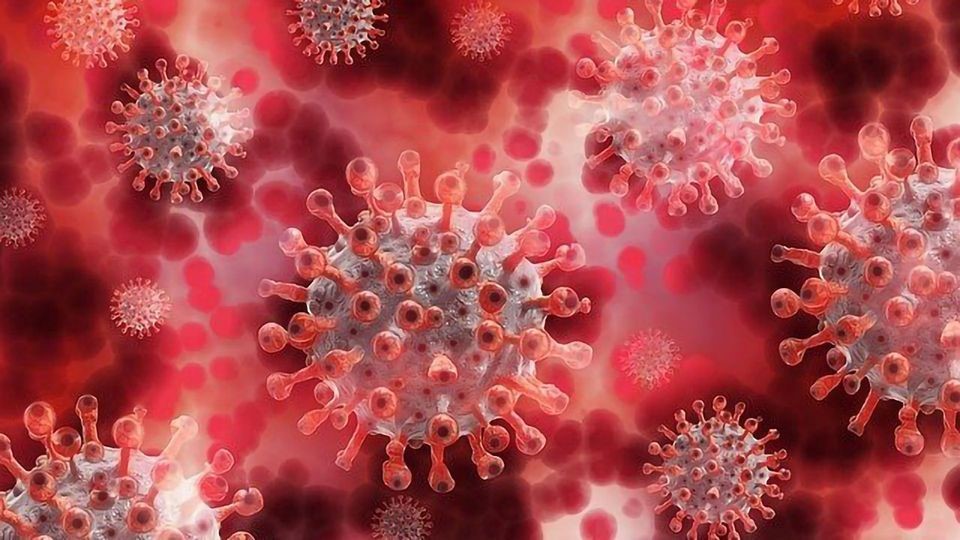Blood Biomarkers Highlight Immune Disruption in Long-COVID
A recent study led by the Icahn School of Medicine at Mount Sinai and Yale School of Medicine has revealed significant differences in the immune and hormone function of long COVID patients compared to those without the condition. Published in the September 25 issue of Nature, this research is groundbreaking as it identifies specific blood biomarkers that can accurately distinguish long COVID patients.

Figure 1. Blood Biomarkers Highlight Immune Disruption in Long-COVID
Figure 1 shows Principal Investigator David Putrino, PhD, emphasized the importance of these findings in enabling more sensitive testing for long COVID patients and facilitating personalized treatments, which have lacked a scientific basis until now. The study is noteworthy for demonstrating clear, measurable distinctions in blood biomarkers between people with long COVID, those who fully recovered from an acute COVID-19 infection, and a group who never contracted the virus.
Long COVID symptoms, initially identified by physicians from the Mount Sinai Health System in 2020, include cognitive impairment ("brain fog"), extreme fatigue, shortness of breath, and chronic pain. According to the Centers for Disease Control and Prevention (CDC), approximately 7.5 percent of adults in the United States experience long COVID symptoms persisting for more than three months after recovering from COVID-19. Many of these patients have experienced unexplained symptoms, and this study provides new evidence shedding light on the potential reasons behind their enduring health issues.
In a study conducted between January 2021 and June 2022 involving 271 patients from three different sites (The Mount Sinai Hospital, Mount Sinai Union Square, and Yale School of Medicine), researchers categorized participants into three groups: those with no prior SARS-CoV-2 infection, those who had fully recovered from a confirmed COVID-19 case, and those experiencing active long COVID symptoms for at least four months or more after a confirmed COVID-19 infection (with a median duration of 12 months since the initial infection).
Each patient provided detailed information about their symptoms, medical history, and health-related quality of life through questionnaires. Blood samples were collected from all participants, and the researcher’s identified differences and similarities in blood biomarkers between the groups. They then employed machine learning techniques to discern which biomarkers were most effective in accurately identifying long COVID patients.
The results showed that the algorithm achieved an impressive 96 percent accuracy in distinguishing between individuals with long COVID and those without it, based on unique features detected in the blood of long COVID patients. Some of the most significant differences observed between the long COVID group and the control groups were related to immune and hormonal dysfunction.
These differences were characterized by abnormal T cell activity, reactivation of multiple latent viruses (including Epstein-Barr virus and other herpesviruses), and notable reductions in cortisol levels. These findings suggest that long COVID patients have a distinct disease process that can be observable through the blood testing protocols established in the study, with variations depending on individual medical histories.
The study's findings underscore the complexity of long COVID and the need for a highly personalized approach to medical management. There is no simple solution or "silver bullet" for treating long COVID because it affects intricate systems such as immune and hormonal regulation. Managing complex illnesses like long COVID requires equally complex treatment solutions. The research highlights the importance of further, rapid research to enhance our understanding of long COVID and discover promising therapies.
Co-Principal Investigator Akiko Iwasaki, PhD, Sterling Professor of Immunobiology and of Molecular, Cellular & Developmental Biology at Yale School of Medicine, expressed excitement about the clear differences in immune phenotypes observed in people with and without long COVID. These markers, while needing validation in larger studies, represent a crucial initial step in unraveling the disease pathogenesis of long COVID.
A study investigated the distinguishing features of Long COVID (LC), a post-acute infection syndrome that can develop after SARS-CoV-2 infection. LC is characterized by persistent symptoms such as fatigue, post-exertional malaise, cognitive issues, and autonomic dysfunction. The study enrolled 273 individuals with or without LC and utilized immune profiling and machine learning techniques to identify biological factors associated with LC.
The research revealed significant differences in the composition of circulating myeloid and lymphocyte populations in individuals with LC compared to matched controls. Participants with LC also displayed heightened humoral (antibody) responses directed against SARS-CoV-2, the virus responsible for COVID-19.
Additionally, individuals with LC exhibited higher antibody responses against non-SARS-CoV-2 viral pathogens, notably the Epstein-Barr virus. Levels of soluble immune mediators and hormones varied among groups, with lower cortisol levels observed in participants with LC. By integrating immune profiling data into machine learning models, the study identified key features strongly linked to LC. These findings have the potential to inform future research on the pathobiology of LC and contribute to the development of relevant biomarkers for the condition.
Source:NeuroScience
Cite this article:
Janani R (2023),Blood Biomarkers Highlight Immune Disruption in Long-COVID,Anatechmaz,pp.756

